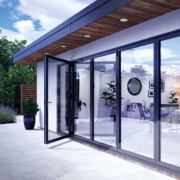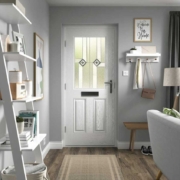4 FAQs About Bifold Doors
For home interiors, one of the most popular renovation projects is bifold door installation, with people increasingly keen to create a seamless transition between their indoor and outdoor spaces.
Folding door mechanisms can actually trace their origins all the way back to ancient Egypt, some 3,000 years or so ago – but the modern iteration was first patented by one Guy Edwin Dixon in the early 1950s, featuring full-height flexible hinges for the first time.
Contemporary interior design schemes feature these doors more often than not these days, but are they right for you and your home? Here are just some of the more frequently asked questions about these products to help you decide if they’d work well for you.
What are the benefits of bifold doors?
There are many associated benefits to having bifold doors installed, everything from increasing the amount of natural light that floods your home to how low maintenance they are, the fact that they don’t take up much space because they concertina up when open, their energy efficiency standards and how secure they are… not to mention how attractive they are when both open and closed.
Which are better, sliding or bifold doors?
We’re often asked whether sliding doors or bifold doors are better, but it will depend on what it is you’re hoping to achieve. If you want doors that open up fully and blur the boundaries between the inside and the out, bifolds would be the best option. It will also depend on how wide your doorway is. If it’s over 5m wide, sliding doors may be better.
Can doors open outwards, or do they always open into the room?
You can decide whether you want your doors to open outwards or into your home. It will depend on how the space is set up and how much room you have to play with, but we can advise you on the best option for your home.
Does the entire door have to open up or can just sections be opened?
You can opt for a single traffic door system so you can nip in and out quickly if you don’t want to open the entire door every time you want to go outside.
Of course, these are just a few questions about these doors – so if you need any further help or advice, get in touch with the Tailored Doors & Windows team today.




